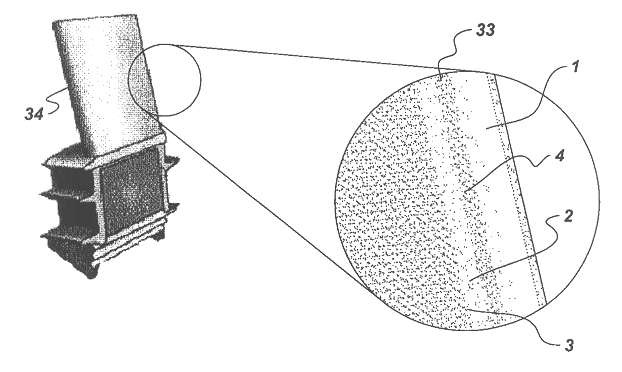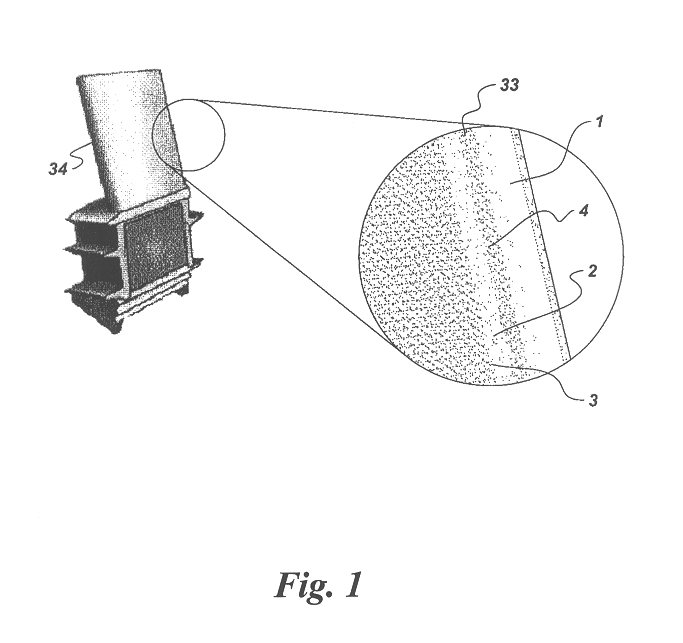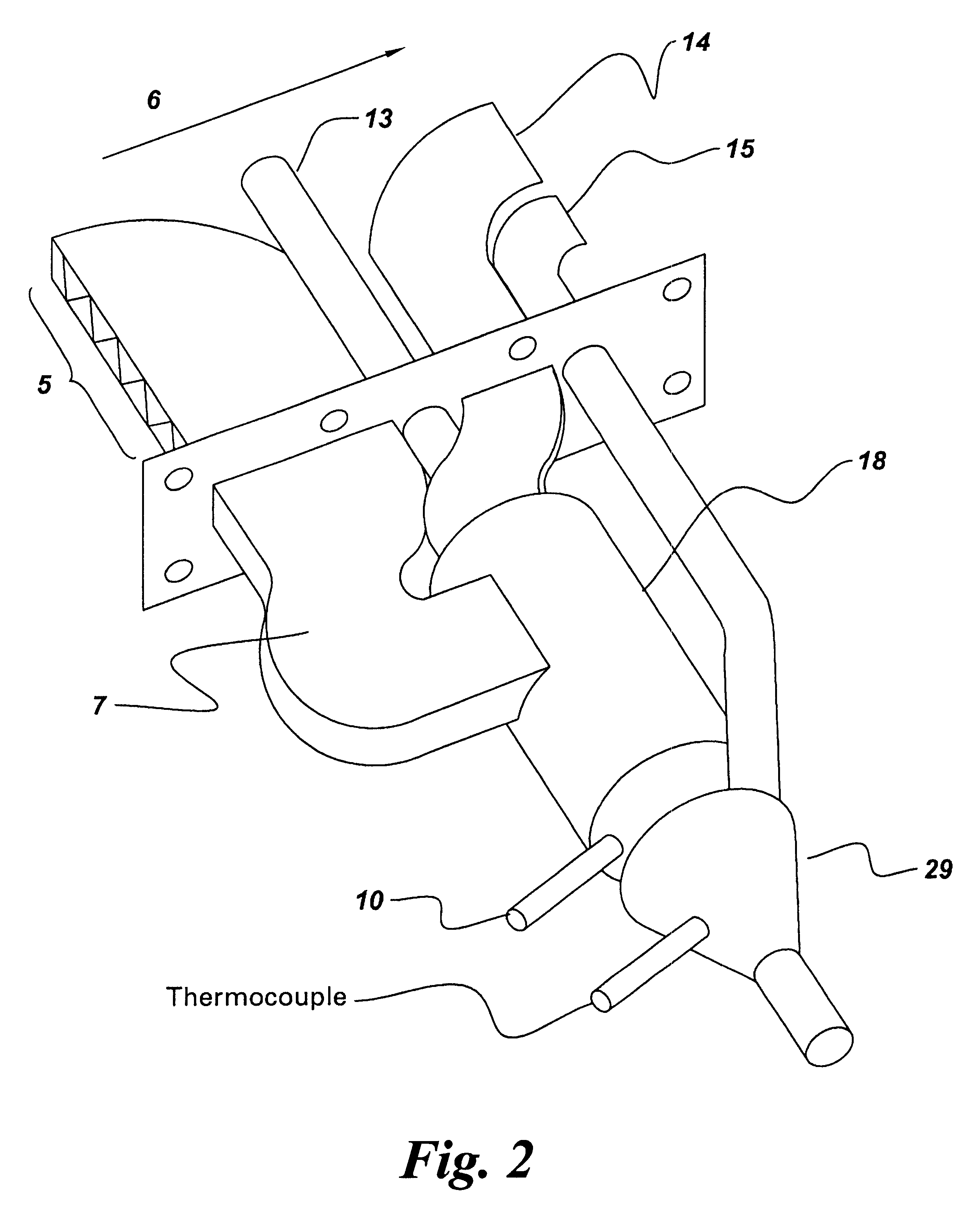Smart coating system with chemical taggants for coating condition assessment
a coating condition and intelligent technology, applied in the direction of wind motors with parallel air flow, wind motors with perpendicular air flow, liquid fuel engine components, etc., can solve the problems of high inefficiency of process, inability to apply gas turbine technology, and inability to release radioactive materials to the environment. , to achieve the effect of reliable detection
- Summary
- Abstract
- Description
- Claims
- Application Information
AI Technical Summary
Benefits of technology
Problems solved by technology
Method used
Image
Examples
Embodiment Construction
FIG. 7 is a cross sectional view of a sample component substrate with an environmentally resistant coating comprising an Ru taggant. The coating composition is: 35.7% Co, 32% Ni, 22% Cr, 10% Al, and 0.3% Y in weight percent. The layer comprising Ru taggant has a composition of 26.8% Ni, 46.4% Ru, 4.7% Cr, and 22.1% Al in weight percent. The substrate is a superalloy has a composition of: 60.39% Ni, 9.5% Co, 14.0% Cr, 3.0% Al, 4.9% Ti, 2.8% Ta, 3.8% W, 1.5% Mo, 0.1% C, and 0.01% B in weight percent. The coating layers were deposited using the HVOF method well known in the art. FIG. 7 depicts the as-deposited condition.
After the sample was exposed at 1150.degree. C. for 450 hours, the coating microstructure is shown in FIG. 8. It can be seen that there was very little growth of the Ru-containing layer, demonstrating stability of the taggant layer with respect to high temperature exposure. When the coating deteriorates by oxidation and wear, and deterioration reaches location A, then t...
PUM
| Property | Measurement | Unit |
|---|---|---|
| temperature | aaaaa | aaaaa |
| weight percent | aaaaa | aaaaa |
| weight percent | aaaaa | aaaaa |
Abstract
Description
Claims
Application Information
 Login to View More
Login to View More - R&D
- Intellectual Property
- Life Sciences
- Materials
- Tech Scout
- Unparalleled Data Quality
- Higher Quality Content
- 60% Fewer Hallucinations
Browse by: Latest US Patents, China's latest patents, Technical Efficacy Thesaurus, Application Domain, Technology Topic, Popular Technical Reports.
© 2025 PatSnap. All rights reserved.Legal|Privacy policy|Modern Slavery Act Transparency Statement|Sitemap|About US| Contact US: help@patsnap.com



